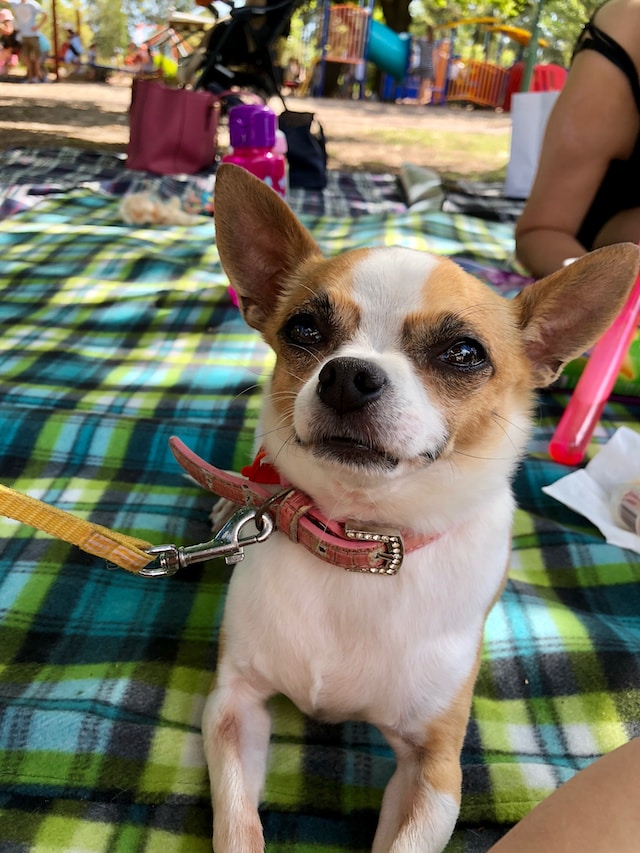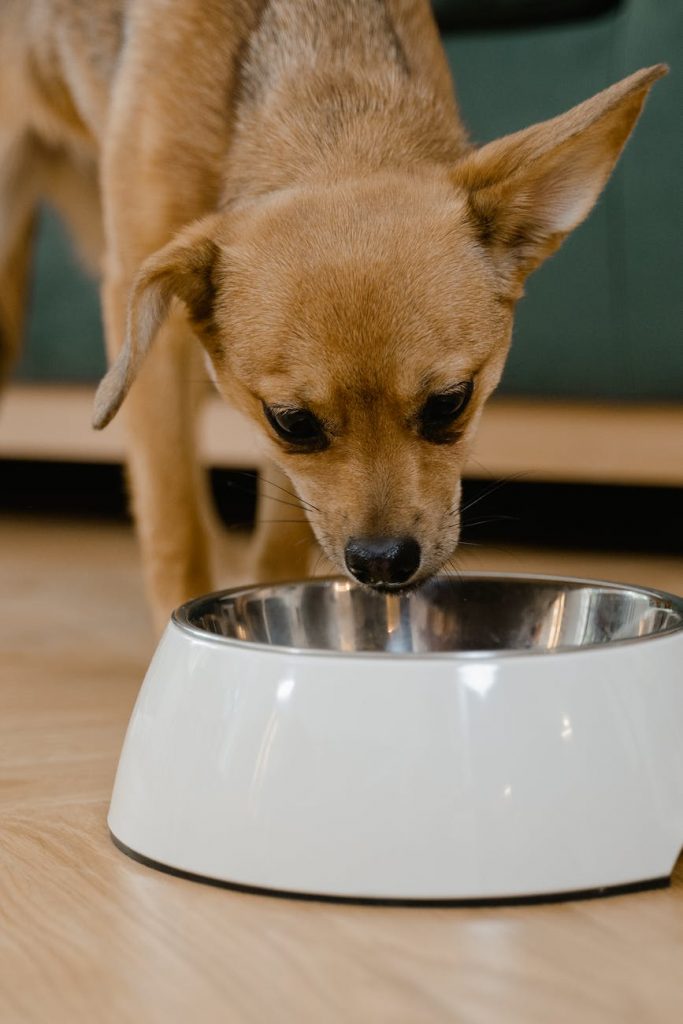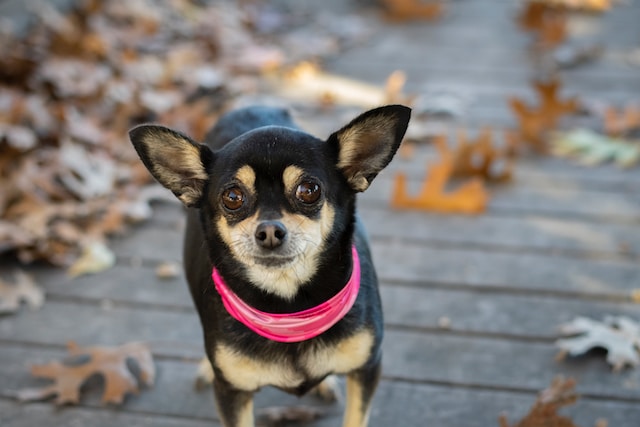How Much Do Chihuahuas Eat? The Complete Guide
If you’ve just brought a tiny Chihuahua at your home, then you’re probably thinking about how to choose the right diet. What is the appropriate food intake and how much do Chihuahuas eat are definitely one of the first questions going through your mind. To help both newbies and experienced owners, we decided to provide you with the ultimate feeding tips.
How much do Chihuahuas eat in a day?
Understanding the dietary needs of a Chihuahua is essential for ensuring their optimal health and well-being. Just like us, our dogs are what they eat. So, before you grab the first dry kibble from the shelf in your local store, make sure you carefully read the label. It will reveal you the ingredients and the amount or real proteins it contains.
Choose high-quality proteins
These small but energetic dogs have unique nutritional requirements that differ from larger breeds. The diet of Chihuahuas should be rich in high-quality proteins to support muscle development and maintenance.
Include fats in your Chihuahua’s diet
On the other hand, fats are also important for energy. However, the amount needs to be balanced to avoid weight gain. Carbohydrates should come from digestible sources to provide energy and fiber. Essential vitamins and minerals are crucial for various bodily functions, including bone health and immune system support. Fats in Chihuahua’s diet are not only important for their energy but also for their skin. They will make their skin elastic and coat shiny. Without fats, your Chi will feel lethargic and won’t be in a mood to go on longer strolls.
Fast metabolism
Chihuahuas, being small, have a faster metabolism than larger dogs, which means they burn calories quickly and might need more frequent meals. However, their small stomachs cannot handle large amounts of food for your Chihuahua at once, which is why portion control is vital. The age of the Chihuahua also plays a significant role in their dietary needs. Puppies, for instance, require more calories and nutrients for growth, while senior Chihuahuas may need fewer calories to avoid obesity.
Special Dietary Considerations for Chihuahuas
Special dietary considerations are crucial when feeding Chihuahuas, as they are prone to certain health issues that can be managed or mitigated through diet. One of the most common concerns is obesity. Due to their small size, even a little extra weight can have a significant impact on a Chihuahua’s health, leading to joint problems, diabetes, and decreased lifespan. It’s important to monitor their calorie intake and ensure they are getting enough exercise.
Chihuahuas Are Prone To Allergies
Some Chihuahuas may also suffer from food allergies or sensitivities. Common allergens include certain proteins (like chicken or beef), grains, and artificial additives. Symptoms of food allergies can include itchy skin, digestive upset, and ear infections. In such cases, a hypoallergenic diet or a limited ingredient diet may be recommended by a veterinarian.
Additionally, older Chihuahuas may develop dental issues that can affect their ability to eat certain types of food. Soft foods or specially formulated senior diets might be necessary for these dogs.
How to Monitor Your Chihuahua’s Diet
Monitoring your Chihuahua’s diet is key to ensuring they are not overfed or underfed. This involves understanding the correct portion sizes for your dog’s age, size, and activity level. A common mistake is to feed them as much as they want or to use the feeding guidelines on dog food packages as a strict rule. These guidelines are often overestimated and need to be adjusted based on the individual dog’s needs.
Signs of overfeeding include obesity in Chihuahuas, lack of a visible waist, and difficulty feeling the ribs under the skin. On the other hand, signs of underfeeding include visible ribs, lethargy, and a loss of muscle mass. Regular weigh-ins and body condition scoring are helpful tools in monitoring your dog’s dietary health.
It’s also important to monitor how your dog reacts to certain foods. Changes in energy levels, coat condition, stool quality, and overall behavior can indicate whether their diet is suitable or needs adjustments. Regular veterinary check-ups are essential to ensure that your Chihuahua’s nutritional needs are being met and to make any necessary changes to their diet.

How Much Do Chihuahuas Eat? Food Intake By Age
Understanding ‘how much do Chihuahuas eat’ is crucial for any owner of this delightful breed. The dietary needs of a Chihuahua change significantly as they progress from puppyhood to senior age. While the breed is known for its small size, their energy levels and metabolism are quite high, necessitating a carefully balanced diet.
Average Daily Intake
On average, Chihuahuas require about 40 calories per pound of body weight each day. However, this can vary based on their activity level, age, and overall health. It is essential to measure their food and monitor their weight regularly to prevent obesity, a common problem in small breeds like Chihuahuas.
Age-specific Dietary Needs
How Much Do Chihuahuas Eat As Puppies?
Chihuahua puppies, especially in their rapid growth phase, need more calories and nutrients compared to adult dogs. They generally eat about 50-60 calories per pound of body weight per day. Puppies should be fed high-quality puppy food that is rich in protein and fat to support their growth and development. The question of ‘how much do Chihuahuas eat’ when they are puppies can be answered by feeding them three to four small meals throughout the day. This helps in providing a steady stream of energy and nutrients.
How Much Do Chihuahuas Eat As Adults?
As Chihuahuas reach adulthood, their calorie needs decrease. An adult Chihuahua typically eats about 35-40 calories per pound of body weight daily. This phase requires a well-balanced adult dog food that supports their maintenance stage. Feeding them twice a day is usually sufficient. The portion size should be controlled to maintain their ideal weight, as adults are less active than puppies and more prone to weight gain.
How Much Do Chihuahuas Eat As Seniors?
Senior Chihuahuas, generally those over 7-8 years of age, have a reduced calorie requirement. They may need only about 30-35 calories per pound of body weight per day. Senior dog foods are often lower in calories but still provide the necessary nutrients. It’s also important to consider their dental health at this stage, as some seniors may have difficulty chewing hard kibble. They may require softer food options.
How much do Chihuahuas eat varies significantly at different stages of their life. From the high-energy needs of puppies to the more controlled intake for adults and seniors, their diet must be carefully managed. Regular consultations with a vet can ensure that your Chihuahua’s dietary needs are appropriately met throughout their life stages.

Types of Food Suitable for Chihuahuas
Dry food vs. Wet food
When considering ‘how much do Chihuahuas eat,’ the type of food plays a crucial role. Dry food, or kibble, is a popular choice for Chihuahuas. It’s convenient, helps with dental health by reducing tartar buildup, and can be more economically efficient. However, some Chihuahuas may prefer wet food, which is more palatable and easier to chew, making it a good option for puppies or seniors with dental issues. Wet food also has higher moisture content, beneficial for hydration. A mix of both can provide a balanced diet, catering to taste preferences while ensuring nutritional needs are met.
Homemade Diets
Homemade diets offer the advantage of knowing exactly what your Chihuahua is consuming. These diets should be well-balanced and formulated with the help of a veterinarian or a canine nutritionist. They should include appropriate proportions of protein, fat, carbohydrates, and essential vitamins and minerals. While homemade diets can be healthy, they require a significant time commitment and understanding of canine nutritional needs.
Treats and Snacks
Treats and snacks should be given sparingly to Chihuahuas. They can be used effectively for training, but it’s important to ensure they don’t make up more than 10% of the dog’s daily calorie intake. Choosing healthy treats, like small pieces of cooked lean meats or vegetables, is preferable.
Feeding Schedule for Chihuahuas
Frequency of Meals
The frequency of meals for a Chihuahua varies with age. Puppies may need to eat three to four times a day, while adults typically do well with two meals per day. Seniors may continue on two meals or be reduced to one, depending on their health and energy levels. By feeding your Chihuahua multiple times a day in descreased portions, you can prevent it from suffering from hypoglycemia. Hypoglycemia in Chihuahuas can severely affect their quality of life.
Portion Control
Portion control is vital in preventing obesity in Chihuahuas. The amount of food should be based on the dog’s weight, age, and activity level. Using a measuring cup for kibble or carefully portioning homemade food ensures consistency. Regular weigh-ins help in adjusting portions as needed.

Special Dietary Considerations
Weight Management
Weight management is crucial for Chihuahuas due to their small stature. Excess weight can lead to health problems such as joint issues, diabetes, and heart disease. Maintaining a balanced diet with controlled calorie intake and regular exercise is key.
Health Issues and Diet
Some Chihuahuas may have health issues that require dietary adjustments. For instance, dogs with diabetes need a diet that helps regulate blood sugar levels. Dogs with allergies may need a hypoallergenic diet. Always consult with a vet for a diet plan tailored to specific health concerns.
How Much Do Chihuahuas Eat: Wrapping Up
When considering ‘how much do Chihuahuas eat,’ it’s essential to choose the right type of food, establish a proper feeding schedule, and pay attention to special dietary considerations. Regular monitoring and adjustments ensure the health and well-being of your Chihuahua.
